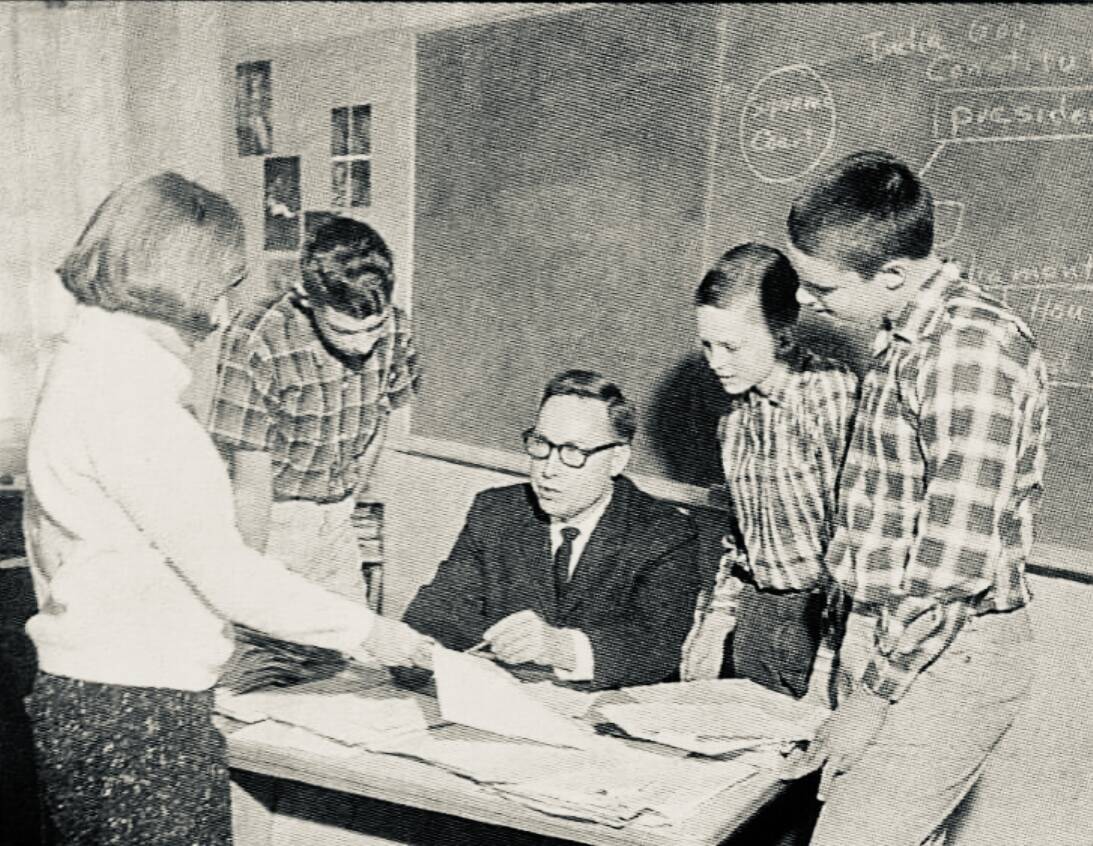It’s that time of year again! In a nation that continually looks across the pond for its royalty fix, we have our annual opportunity to embrace a regal atmosphere of ceremonial ritual.
Although they are a far cry from a king’s coronation, graduation ceremonies allow us to feel a sense of pomp amid our circumstances. There is a certain splendor in the ritual that crowns the achievement of those who have reached an educational milestone.
Part of the pomp is the keynote address given to the graduates. That challenge typically is a laundry list of life lessons reminding the class of gowned and capped achievers what to “sort,” when to “bleach,” how to “hand wash” and what to “hang dry” in order to maximize results.
For college commencements, speakers are typically celebrity guests from off campus. For high school graduations, the speakers tend to be students who have excelled academically. In both instances, the retention reality of what is shared remains a bit suspect. Continuing the “laundry list” metaphor, what was said in a commencement address is easily “lost in the wash.”
Upon reflection, after a half-century since I donned my cap and gown, I would like to pose an idea for administrators to ponder as future ceremonies are planned. Why not choose a beloved teacher who has a personal relationship with the graduating class? Perhaps their time-tested advice for a successful future might prove more colorfast. It just might have more of a “cling factor.” Let me offer an example.
Even though Pershing Beglau was not invited to address our graduating class in the spring of 1970, what he taught me four years earlier left a permanent crease in the fabric of my character. This man, with the rather unusual name, was my 8th grade social studies teacher at Pioneer Junior High. His knit neckties with the squared-off tail conveyed the seriousness with which he viewed his vocation. He modeled decorum and decency.
He introduced me to classical music I’d never heard at home. As we entered his classroom, Mr. Beglau’s penchant for flamenco guitar music was evident. Records by Carlos Montoya were played regularly. The enthusiasm with which he shared his musical passion rubbed off. I am a classical music lover to this day. In fact, I still have the Carlos Montoya album I bought in in 1965 to be like Mr. B.
And it was Mr. Beglau who first inspired me to write for a newspaper. (And I still am writing for one.) Our class published a paper we called “The World Scene.” That weekly rag included paraphrased articles summarizing current events we were studying as well as a political cartoon. And speaking of political cartoons, it was Mr. Beglau who taught us how to make not of them and understand their meaning. Every Monday we had to turn in a cartoon with an explanation of what the cartoonist was attempting to day.
How I wish Mr. Beglau had been chosen to address our senior class. I’m quite sure his words would have had staying power. The relationship we had with him (and he with us) would have guaranteed that. And yet, even though that was not the case, there was something Mr. B shared with us in the eighth grade that had a valedictorian punch to it. All these years later, I still remember what he scrawled with a piece of white chalk on the blackboard…
“He who knows not and knows not he knows not: he is a fool — shun him. He who knows not and knows he knows not: he is simple — teach him. He who knows and knows not he knows: he is asleep — wake him. He who knows and knows he knows: he is wise — follow him.”
Now if that isn’t wrinkle-free wisdom, I don’t know what is.
Guest columnist Greg Asimakoupoulos is chaplain at Covenant Living at the Shores in Mercer Island.




